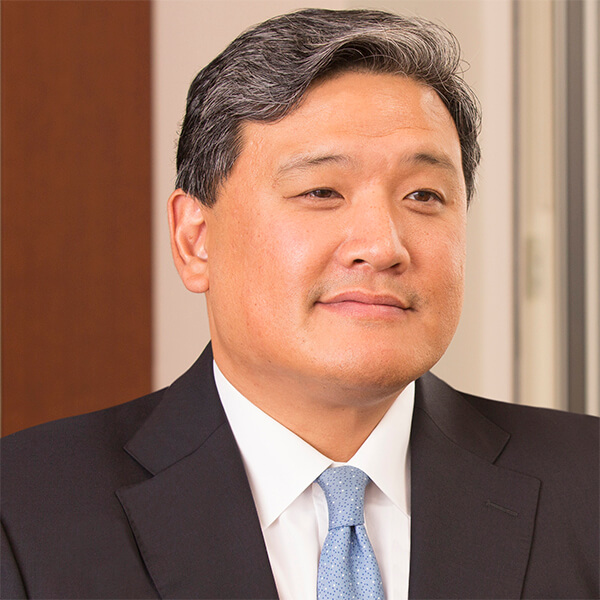Capital IdeasTM
Investment insights from Capital Group
China
With the book now closed on the 20th Congress of the Chinese Communist Party (CCP), market watchers are busy analysing the various personnel and policy developments as they try to plot the next five years and beyond for the world’s second-largest economy.
This week-long event provides the best indication of China’s economic direction for the bulk of the 2020s, with the 21st National Congress due in 2027, when General Secretary Xi Jinping will be 74.
While the official report indicated no imminent exit from zero-COVID policies and reiterated past messages on areas such as curbing property speculation and promoting Common Prosperity, it also included sections on supporting Chinese modernisation, technology innovation, and boosting domestic demand.
In the immediate aftermath, concerns over policy direction and fears of a more hard-line approach to COVID-19 and security, possibly at the expense of economic growth, sparked a selloff in Chinese equities, although the market quickly rallied.
In the following article, we look at five key outcomes from the 20th Congress, covering changes in the Politburo Standing Committee (PSC) and what they could mean for policy, shifts in China’s medium to long-term development objectives, and potential short and longer-term investment implications.
1. Leadership
As confirmed at the Congress, Xi Jinping has embarked on a historic third term as President and promoted four new members to the seven-strong PSC, the Party’s top leadership. Li Qiang, the Shanghai Party Secretary who started to work with Xi in the early 2000s, was among these newcomers and will likely be named Premier in March when Li Keqiang steps down.
The economic team, as widely predicted, looks closely aligned with Xi’s policies and more focused on sustainable security, and the implications of that will become clearer with time.
By breaking the precedent of two terms as leader set by Deng Xiaoping, and filling the PSC with several of his protégés, a new ‘New Era’ in Chinese politics has begun. While there might be concerns about a lack of checks and balances, the new PSC line-up does imply more cohesive leadership at the highest level and may lead to more focused implementation of policy and less resistance to ongoing reform.
One-man dominated political systems tend to result in a wider range of outcomes than those with constraints. Xi appears laser-focused on security across all realms and that may increasingly come to dominate.
2. Security
Xi has signalled the next few years will be challenging, with the new CCP Charter urging people to ‘carry forward the spirit of struggle and strengthen the skills of struggle.’ The Congress report said the world is ‘entering a new period of turbulent changes’, citing rising geopolitical uncertainty and increasing challenges from protectionism and unilateralism.
Against this backdrop, a major shift in rhetoric between the 19th and 20th Congresses was from balancing development and stability to balancing development and security. The report for the 20th features a section stressing ‘self-reliance and strength in science and education’ and secure and reliable supply chains.
Other priorities include establishing a modern industrial system, with policies to support upgrades in manufacturing, transportation, aerospace, and digitalisation, and advancing sectors such as AI and new energy.
This security theme also stretches to areas as diverse as food, energy and national security, with initiatives to enhance data security and build mechanisms to deal with potential sanctions. Energy security objectives are closely linked to China’s climate strategy, with the country still aiming to meet goals of peak CO2 emissions before 2030 and carbon neutrality prior to 2060.
Risk factors you should consider before investing:
- This material is not intended to provide investment advice or be considered a personal recommendation.
- The value of investments and income from them can go down as well as up and you may lose some or all of your initial investment.
- Past results are not a guide to future results.
- If the currency in which you invest strengthens against the currency in which the underlying investments of the fund are made, the value of your investment will decrease. Currency hedging seeks to limit this, but there is no guarantee that hedging will be totally successful.
- Risks may be associated with investing in fixed income, emerging markets and/or high-yield securities; emerging markets are volatile and may suffer from liquidity problems.
Our latest insights
-
-
-
European Equity
-
Economic Indicators
-
Past results are not predictive of results in future periods. It is not possible to invest directly in an index, which is unmanaged. The value of investments and income from them can go down as well as up and you may lose some or all of your initial investment. This information is not intended to provide investment, tax or other advice, or to be a solicitation to buy or sell any securities.
Statements attributed to an individual represent the opinions of that individual as of the date published and do not necessarily reflect the opinions of Capital Group or its affiliates. All information is as at the date indicated unless otherwise stated. Some information may have been obtained from third parties, and as such the reliability of that information is not guaranteed.
Capital Group manages equity assets through three investment groups. These groups make investment and proxy voting decisions independently. Fixed income investment professionals provide fixed income research and investment management across the Capital organisation; however, for securities with equity characteristics, they act solely on behalf of one of the three equity investment groups.
 Kent Chan
Kent Chan